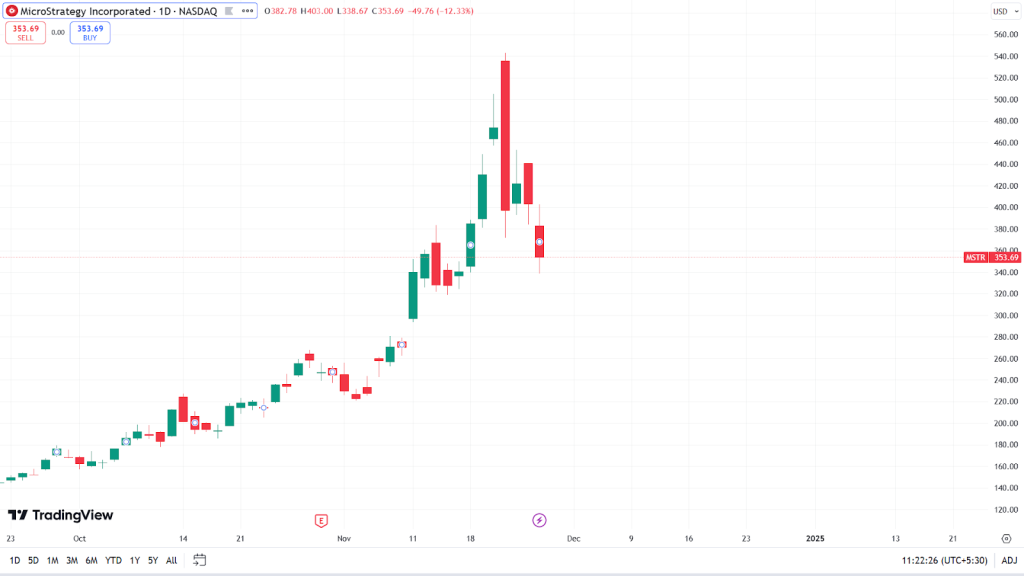The curtain fell on the first-quarter 13F filings with the US Securities and Exchange Commission (SEC) on Wednesday, and the reports revealed a seismic shift in institutional investment patterns toward spot Bitcoin exchange-traded funds (ETFs), with Millennium Management emerging as a frontrunner in this new asset class.
Millennium Becomes The King Of Bitcoin ETFs
Millennium Management, helmed by billionaire Izzy Englander and overseeing assets worth over $64 billion, reported an unprecedented $2 billion investment distributed among several Bitcoin ETFs. This mammoth investment has not only positioned Millennium at the zenith of Bitcoin ETF ownership but also signals a broader acceptance and validation within traditional investment frameworks.
The detailed disclosure showed Millennium’s investments spread across five major funds: $844,181,820 in BlackRock’s iShares BTC Trust (IBIT) which represents 20,859,447 shares, $806,640,303 in Fidelity’s Wise Origin BTC Fund (FBTC) encompassing 12,997,749 shares, $202,029,915 in Grayscale’s BTC Trust (GBTC) holding 3,198,194 shares, $45,001,320 in ARK’s BTC ETF (ARKB) for 634,000 shares, and $44,737,805 in Bitwise’s BTC ETF (BITB) with 1,155,717 shares.
Renowned crypto analyst MacroScope remarked via X, “Major filing after the market closed today. Next to Wisconsin’s yesterday, certainly one of the most important BTC disclosures to date and it will get huge attention from asset managers.” On Tuesday, the State of Wisconsin disclosed a $161 million allocation in BlackRock’s IBIT and Grayscale’s GBTC.
According to Bloomberg ETF analyst Eric Balchunas, this level of diversified investment across all Bitcoin ETFs is unprecedented. But “Millennium is king of the Bitcoin ETF holders with about $2 billion across four ETFs, out of over 500 holders. This is approximately 200 times the average for new ETFs,” Balchunas explained.
He further noted the majority of these investments came from investment advisors (60%) and a significant portion from hedge funds (25%). Balchunas also highlighted the rapid accumulation of liquidity and a diverse institutional footprint in IBIT, which is atypical for a newly launched ETF.
Millennium is king of the bitcoin ETF holders w/ about $2b across four ETFs. This is out of over 500 holders (about 200x the avg for new ETF). Majority are inv advisors (60%) but a big dose of HFs (25%). Never can be totally sure what HFs up to but they were def big buyers. pic.twitter.com/iVtVXjhId0
— Eric Balchunas (@EricBalchunas) May 15, 2024
“You normally don’t see such a diverse range of holder types until years after an ETF’s launch,” he added, indicating the robust market confidence in Bitcoin’s potential as an investment asset.
The sector’s growth was further underscored by additional disclosures from other major financial entities. Paul Singer’s Elliott Capital disclosed an investment of nearly $12 million in BlackRock’s IBIT as of the end of the quarter, while Apollo Management Holdings reported a $53.2 million stake in ARK/21’s ARKB.
The wave of investment did not end with hedge funds and asset managers. Other notable entities such as Aristeia Capital and Hudson Bay Capital also revealed significant stakes in Bitcoin ETFs, contributing to the combined assets under management of all 10 available spot Bitcoin ETFs, which now stand at cumulative inflows of $12.1 billion.
As the deadline closed, the filings painted a picture of a rapidly maturing market where Bitcoin is no longer seen as just an alternative or speculative asset but as a viable part of diversified investment portfolios, attracting interest across the spectrum of financial institutions.
At press time, BTC traded at $65,771.






